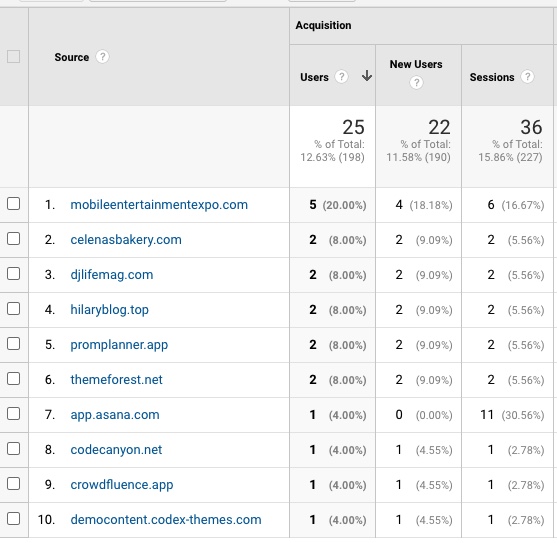As we all know – and I preach this every year at DJX in Atlantic City – SEO is vital to a strong marketing campaign for your DJ company.
Ranking on Page 1 for Google in your area for the various business-generating keywords in the DJ industry is one of the two major drivers of new bookings – the other being world-of-mouth, of course. Almost every serious DJ company has some sort of an SEO program in place, and rightly so. These efforts take time and resources, of course, but are well worth it in the long run.
Unfortunately, as with anything digital, there are many different ways to fight the business fight against your competition. Some of them are ethical in nature – for example, simply just doing a better SEO job to outrank your competitor organically. However, other methods are less scrupulous. We’ll talk here in this article about protecting your brand’s digital footprint against something that is used far too often in the digital world, on the topic of…
Negative SEO
Simply put, Negative SEO refers to a grouping of methods that a brand can use, in order to maliciously bring down the Google rankings of their competitors. It’s not ethical, but also not necessarily illegal either. Even if you are an ethical operator and choose to avoid such methods, you should at the very least know how to protect yourself from other brands trying to use these methods against you. Let’s take a look at one widely used method and run though the cause, as well as the solution.
Background
Back in the 2000s, gaining SEO-boosting backlinks was an extremely easy task. It didn’t matter where the backlink was located; if Google could see it, then it counted in your PageRank SERP calculation. However, SEO-spammers took advantage of this backlink weakness over the years, and content-farms arose, mainly in Poland and other areas of Eastern Europe.
For a few hundred bucks, you could have 3,000 to 5,000 backlinks posted up within a week, and outrank your competition significantly… therefore, skipping all the usual hard work that a proper organic website puts in over the years to obtain their ranking ethically.
Google was inundated with complaints, and changed their algorithms drastically in 2011 (Panda) and 2012 (Penguin) in a variety of ways. The most significant of these changes is putting relevance into the calculation, so that a backlink by itself isn’t enough anymore. The backlink has to be hosted on a site that is also weightier by a relevance legitimacy factor.
For example, a DJ company backlink hosted on a local DJ directory is positively relevant; whereas a DJ company backlink hosted on a site that is just a collection of unorganized backlinks coming from a server located in some country on the other side of the world is not relevant. So, now – and here’s the most important thing to realize – a backlink on such an irrelevant server/site will actually cause you to take a Google penalty!
After the Penguin algorithm update was implemented, it wasn’t long before those unscrupulous SEO marketers learned that they could execute on a Negative SEO campaign simply by posting the URL of their competitors on such irrelevant servers/sites, and this method is still used today. Fortunately, there are ways to defend against this attack, and DJ LIFE is happy to show you how.
Identify Malicious Backlinks
First, you need to check what backlinks might actually be causing you problems. Some of the major SEO tools that are used out there (Moz, KissMetrics, Semrush, Serpstat, SE Ranking, etc.) all have backlink checkers that will provide assessments of the backlinks that Google has indexed for your website URL. For now, though, let’s show you a foolproof method “from scratch” (no pun intended).
Checking Google Analytics for my new website, the following screenshot is from Acquisition/Referral Traffic… in other words, your backlinks.

Google Disavow Tool
Using the Google Disavow Tool, you can essentially tell Google to “ignore” any positive or negative aspects from a particular backlink. See the tool page here:
https://search.google.com/search-console/disavow-links
Note that this tool is connected to Google Search Console, and you can get to this page while logged into GSC as well.
There are lots of articles out there online about this subject. So, feel free to do your own research, of course. My own personal policy is to go “zero-risk” on these. If there’s any possibility of harm, then just disavow it. Hope for the best, plan for the worst. No matter what your preferred plan is, you should pay attention to your backlinks at least once a month, preferably twice a month. Knowing the problem is there allows you to prevent damage and keep your rankings where they need to be.

To check out more business tips, click here.


